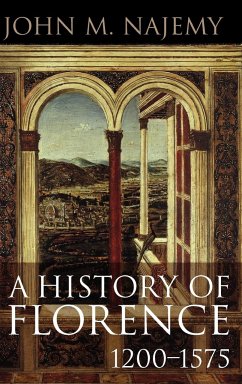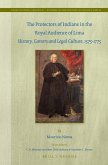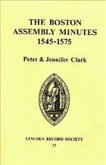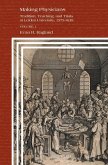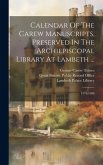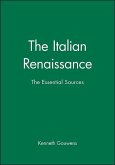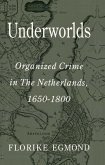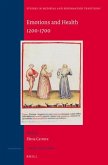Florence during the Renaissance is famously known as the center for the rebirth of scholarship, literature, and the arts. But it was also an autonomous republic, a site of innovative experiments in government, a major economic power that produced great wealth and yet underwent recurrent fiscal crises, and a locus of conflicts among the elite families, the guild community, and the working classes, and between family-based factions grounded in patronage and private power. In this history of Florence, distinguished historian John Najemy discusses all the major phases of Florentine history from 1200 to 1575, including the formation of the elite of great families, the rise of the guild-based "popolo" and the guild republic of the 1290s, the crisis of the 1340s, the revolutions of 1378-82, the wars against Milan, the fiscal crisis of the 1420-30s, the rise and fall of the Medici regime, the republican revival in the age of Savonarola and Machiavelli, and the drama of the last republic of 1527-30 and subsequent emergence of the principate. His account weaves together intellectual, cultural, social, economic, religious, and political developments, capturing Florence's transformation from a medieval commune into an aristocratic republic and finally into a princely and territorial state. Based on the mass of scholarship on Florentine history, and on a first-hand understanding and close reading of the primary sources, Najemy provides an original interpretation of Florentine history that will appeal to scholars and general readers for years to come.
"Based on wide reading of the available secondary and printedsources, A History of Florence represents the achievement ofa lifetime's devotion to the study of the city. Moreover, Najemy'scategories of analysis should provoke debates and conversations forfuture lifetimes." (Renaissance and Reformation,2009)
"There is much to praise about this book. It is a model historicalsynthesis of the history of a great premodern European city. It isalso a sophisticated political history in which class-based ideasand values matter as much as individual details of politicalevents." (The Catholic Historical Review, July 2010)"[This]is the best history of Florence in any language, and it will longremain so, for Najemy has mastered the relevant literature morethoroughly than any other historian in living memory." (TimesLiterary Supplement)
"John Najemy is a pre-eminent historian of Renaissance Florence... a scholar of learning, imagination and intellectualpenetration, with a profound knowledge of Florentine history fromthe thirteenth to the sixteenth century and with a remarkable rangeof interests in political, social and intellectual history. Therehas been no credible attempt to write a history of Florence in thisperiod since the time of Perrens's multi-volume work, finished in1883. Najemy has risen admirably to the challenge. He hasassimilated the vast secondary literature on Florence, from thebeginning of the thirteenth to the late sixteenth century. Therange of his analysis and explication stretches across a vast rangeof fundamental social, political, economic, diplomatic, militaryand biographical topics. Nor is Najemy indifferent to intellectualhistory, especially questions involving political thought andideology. This book is no mere synthesis of other scholars' work.Indeed, Najemy offers a distinctive interpretation, one which hasalready stimulated controversy and will doubtless continue to doso." (Reviews in History)
"Highly recommended." (Choice)
"An extraordinary accomplishment. Deserves rich praise as afundamentally new and authoritative interpretation of four keycenturies of this remarkable city's development."Speculum"[Najemy], a veteran Renaissance historianoffers a big and impressive survey of the Florentine city-state.... One of the justifications for the book [is] the need foran updated and accessible synthesis of the superabundance of recentspecialized scholarship on Florence. He succeeds admirably at thattask ... [and] manages to explain and contextualize detailedscholarship while remaining a lively and engaging politicalnarrative. [It] will surely become the definitive narrative ofmedieval and Renaissance Florence, a point of departure forstudents of Florentine politics and culture as well as a majorinterpretive statement providing much for specialists to engagewith for some time." (Sixteenth Century Journal)"A masterly survey of a generation of scholarship that has openedup many new perspectives, by an expert guide to the complexpolitical society of medieval and Renaissance Florence."
--Christine Shaw, of Cambridge University
"This is a marvellous book and I suspect it will become aclassic. John Najemy has an astonishing and probably unparalleledmastery of the scholarship on Florence and has accomplished aprecise and beautifully written synthetic history of the Medievaland Renaissance city."
--Carol Lansing, University of California, SantaBarbara
"There is much to praise about this book. It is a model historicalsynthesis of the history of a great premodern European city. It isalso a sophisticated political history in which class-based ideasand values matter as much as individual details of politicalevents." (The Catholic Historical Review, July 2010)"[This]is the best history of Florence in any language, and it will longremain so, for Najemy has mastered the relevant literature morethoroughly than any other historian in living memory." (TimesLiterary Supplement)
"John Najemy is a pre-eminent historian of Renaissance Florence... a scholar of learning, imagination and intellectualpenetration, with a profound knowledge of Florentine history fromthe thirteenth to the sixteenth century and with a remarkable rangeof interests in political, social and intellectual history. Therehas been no credible attempt to write a history of Florence in thisperiod since the time of Perrens's multi-volume work, finished in1883. Najemy has risen admirably to the challenge. He hasassimilated the vast secondary literature on Florence, from thebeginning of the thirteenth to the late sixteenth century. Therange of his analysis and explication stretches across a vast rangeof fundamental social, political, economic, diplomatic, militaryand biographical topics. Nor is Najemy indifferent to intellectualhistory, especially questions involving political thought andideology. This book is no mere synthesis of other scholars' work.Indeed, Najemy offers a distinctive interpretation, one which hasalready stimulated controversy and will doubtless continue to doso." (Reviews in History)
"Highly recommended." (Choice)
"An extraordinary accomplishment. Deserves rich praise as afundamentally new and authoritative interpretation of four keycenturies of this remarkable city's development."Speculum"[Najemy], a veteran Renaissance historianoffers a big and impressive survey of the Florentine city-state.... One of the justifications for the book [is] the need foran updated and accessible synthesis of the superabundance of recentspecialized scholarship on Florence. He succeeds admirably at thattask ... [and] manages to explain and contextualize detailedscholarship while remaining a lively and engaging politicalnarrative. [It] will surely become the definitive narrative ofmedieval and Renaissance Florence, a point of departure forstudents of Florentine politics and culture as well as a majorinterpretive statement providing much for specialists to engagewith for some time." (Sixteenth Century Journal)"A masterly survey of a generation of scholarship that has openedup many new perspectives, by an expert guide to the complexpolitical society of medieval and Renaissance Florence."
--Christine Shaw, of Cambridge University
"This is a marvellous book and I suspect it will become aclassic. John Najemy has an astonishing and probably unparalleledmastery of the scholarship on Florence and has accomplished aprecise and beautifully written synthetic history of the Medievaland Renaissance city."
--Carol Lansing, University of California, SantaBarbara

